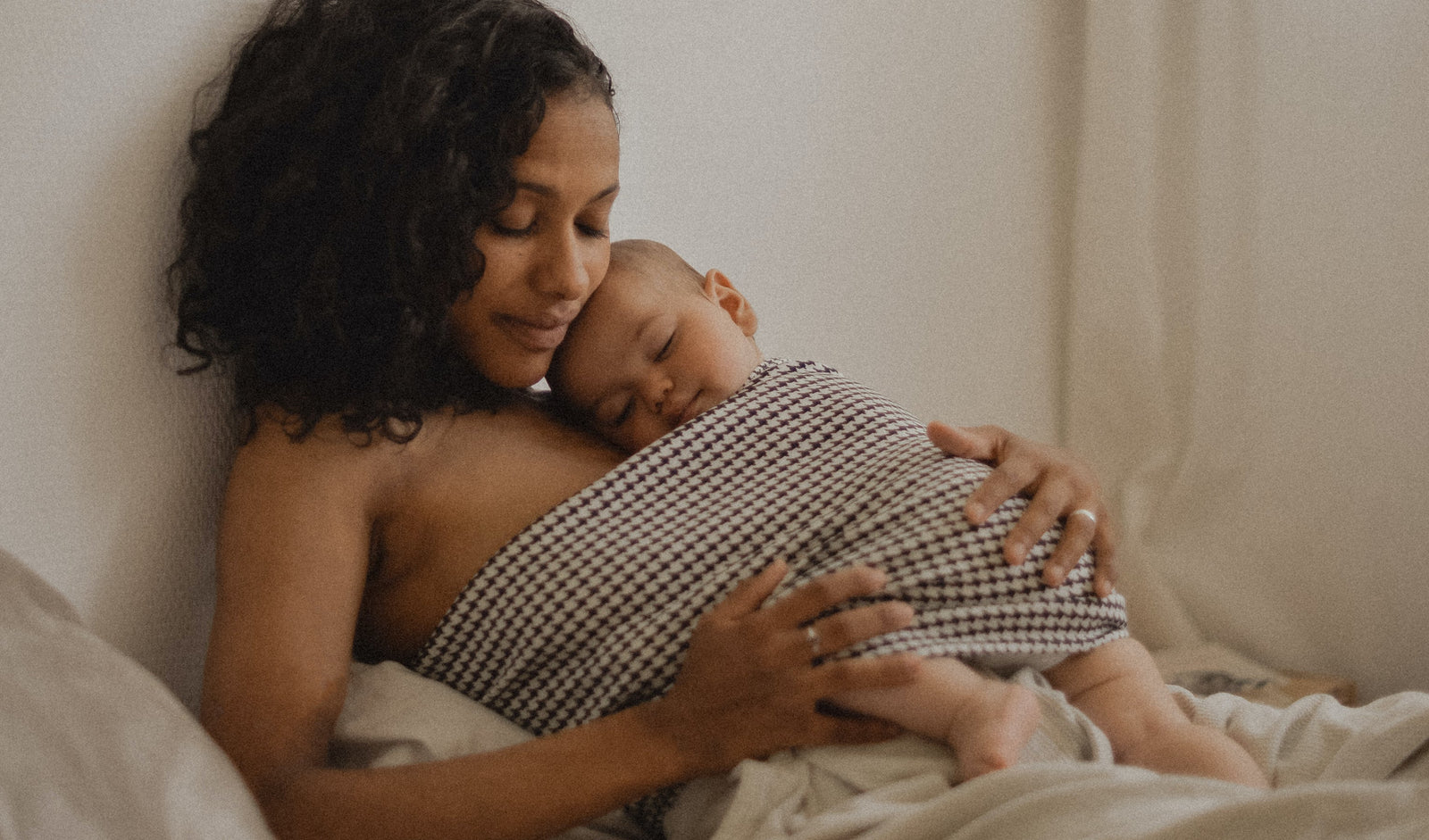Proximal parenting: full of love
Behind these parents who remain physically close to their children, there is an educational concept that aims to help the baby to be independent. This practice is called proximal parenting. Decryption.
Building their emotional security
Breastfeeding, carrying your baby, co-sleeping, practicing skin-to-skin , responding immediately to your baby's needs... These are some of the characteristic foundations of proximal parenting. This practice appeared in the United States, under the impetus of pediatrician William Sears, author of the expression "attachment parenting". For this American doctor, attachment is one of the baby's primary needs, just like eating or sleeping. Once his needs for proximity are satisfied, the child can then move away from the figure that provides him with security, to explore the world around him.
Some moms on Instagram explain their choice to us. “ An obvious one ” according to Roxanne. “ It’s the guts that speak ” Lisa tells us.
Marie, mother of Maximilien, 18 months, reveals her trigger “ When Max was born, I was torn at the idea of letting him cry. My mother insisted on not comforting him. She was afraid that I would give him bad habits, but I couldn't do it. One thing led to another, and I came across the concept of proximal parenting. The idea is to always respond to your child's needs, in order to give him confidence and make him independent. Basically, we fill his emotional tank so that he can better fly on his own later on. ”
Marie continues, “I never thought I would become this mother who breastfeeds for a long time, who carries her baby in a sling and sleeps with him .” And yet, this lifestyle suits her and her partner well. “ Max’s dad is as committed as I am. He loves carrying Max against him, whether it’s for our weekend walks or taking him to daycare. Even at home, when Max needs a cuddle and we’re busy, we hold him against us in his baby carrier . We keep our hands free and he feels reassured. It’s a win-win. ”
For Alysson, “ carrying does him as much good as it does me, like a continuation of the pregnancy .”
On the breastfeeding side, Marie has kept her breastfeeding-cuddle ritual in the morning and evening as she works. “ It’s not a fad or a hippie thing. Even the WHO recommends exclusive breastfeeding for the first 6 months of life, and continued breastfeeding until the age of 2, or even beyond depending on the mothers’ wishes. ”
When we talk about proximal parenting, comments can fly. Some parents come up against objections from those around them. “ My family thinks we are too protective of our son. Others say we want to play the role of perfect parents, or that we are making up for our own childhood. We are perfectly aware that we have flaws. It is just the path we have chosen to raise our son, and give him the best keys, in our opinion. ” confides Agathe.
Marie is no exception either. “ How do you manage to end up with your partner when you sleep with Max, you are too close to your son... I absolutely do not judge my friends who think that carrying is a hippie thing or those who let their baby cry. Even if there are recent studies* that prove that stress peaks caused by crying are bad for the baby in the long term. Everyone does as they see fit or as they can. ”
And that’s what it’s all about. Freedom and choice. As Maxine reminds us, motherhood is not a linear path, but an enlightened journey that we adapt to ourselves and our children. “ I’m expecting a baby in April and proximal mothering is what speaks to me the most… To be seen in real life .”
Thanks to our community for their testimonials.
The Studio Romeo Team ♡


